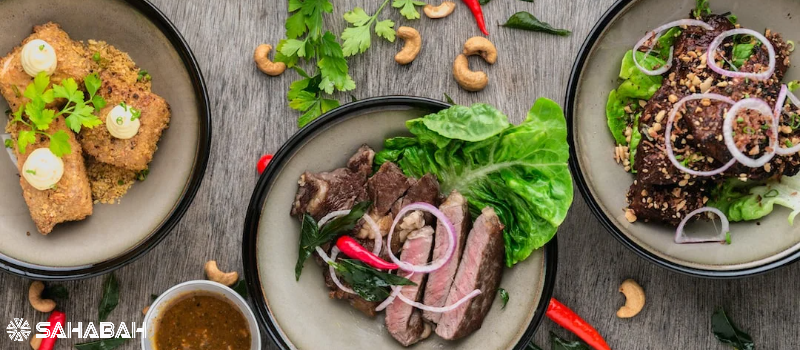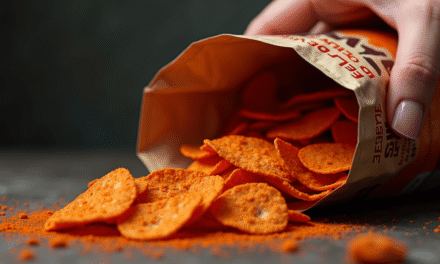Bunsik refers to popular Korean street food often sold from small food stalls, carts, and casual streetside restaurants across Korea. Known for being quick, flavorful, affordable, and convenient, some classic bunsik items include tteokbokki (stir fried cylinder rice cakes), eomuk (fish cakes), hotteok (sweet dessert pancake), egg bread (savory braided egg pastry), bungeoppang (fish-shaped red bean pastry), and street snacks like tempura, kebabs, and dumplings.
As interest in Korean culture and cuisine continues gaining momentum globally, bunsik has also started trending abroad. Dedicated Korean street food restaurants have popped up in foodie destinations like LA, New York, London, and Toronto. You can even find some eateries and food delivery services bringing authentic bunsik flavors straight from Korea to international fans abroad.
But for observant Muslim consumers, a key question arises when encountering Korean food overseas: does bunsik qualify as halal? This article will closely analyze bunsik ingredients, preparation methods, risk of cross-contamination, and availability of halal certification in Korea. The goal is to determine if bunsik street eats adhere to Islamic dietary regulations or if certain accommodations need to be made.
Overview of Islamic Food Standards
As a quick refresher on halal food guidelines per the Quran:
No pork or pork byproducts – Pork meat and any ingredients derived from pigs are forbidden. This includes lard, gelatin, bacon, ham and pepperoni.
No alcohol – Any alcohol used as an ingredient is prohibited. This includes wine vinegar, mirin, cooking wine or spirits like soju.
Properly slaughtered meat – Land meat must come from animals slaughtered by a Muslim while invoking Allah’s name. This includes beef, lamb, goat, chicken, etc.
No contamination from anything haram – There cannot be any contact between halal foods and prohibited substances during processing, cooking, preparation or serving through shared surfaces, equipment or utensils.
With an understanding that food must meet all the above criteria to be considered truly permissible “halal,” let’s analyze some popular bunsik menu items.
Analysis of Common Bunsik Ingredients
When examining the typical components of favorite bunsik dishes, a few categories raise red flags:
Meats: Certain bunsik feature processed meat products like sausages, fish cakes and dumpling fillings. These may contain pork fillers or flavors prohibited for Muslims.
Alcohols: Many bunsik cooking processes involve deglazing pans with Korean rice wine or spirits. Acidity regulators, sweeteners and flavour enhancers derived from alcohol are also common in Korean cuisine.
Broths & Sauces: Dashi seafood stock, oyster or fish sauce provide “umami” flavor in many dishes. Soy sauce also often contains trace alcohol left from fermentation. Mirin rice wine adds sweetness to glazes and braising liquids.
So on initial inspection, the ingredients involved in most mainstream bunsik sold at average street food stalls and restaurants would likely not comply with halal standards for observant Muslim patrons. Let’s analyze some specific popular dishes:
Tteokbokki – The rice cakes and fish cakes may contain filler and binders with pork. The spicy gochujang sauce includes Korean alcohol and fermented bean paste.
Eomuk – Depending on the brand, the processed fish paste batter could have pork added as cheap filler. Also fried in shared oil.
Hotteok – The sweet dessert pancakes involve milk and eggs which are halal. But they’re cooked on the same griddle as meat and seafood.
Egg bread – Typically egg bread does not include any haram ingredients, but is prepared alongside non-halal items sharing equipment.
So on the whole, standard bunsik fare sold from the average street food vendor in Korea may not meet Muslim dietary restrictions. But certified options are growing.
Expanding Availability of Halal Korean Bunsik
With Korea’s Islamic community estimated at over 150,000 Muslim residents and visitors, demand for halal food is increasing across the country. In response, more Korean dining establishments from street stalls to franchised chains are obtaining halal certification for menu items made compliant to Islamic law.
Dedicated halal Korean restaurants conduct their entire food preparation process separately using halal-only ingredients sourced from approved suppliers. Designated cooking equipment and serving utensils are used exclusively for halal menu items to prevent any cross-contamination with non-halal foods.
For example, My Halal Kitchen in Seoul isolates their halal prep area. Popular street food menu items like egg bread, tteokbokki, mandu dumplings and tempura follow Islamic guidelines under certified halal procedures.
Large fast food chains like Lotteria have introduced halal-friendly menus across their locations too. All ingredients are confirmed halal. Meals are made in isolated kitchens exclusively by Muslim employees according to religious protocol.
So while the typical bunsik sold on the streets may not meet halal standards, Korea does offer a steadily increasing number of certified halal eateries for visitors and residents. Those seeking halal Korean fare can find comforting favorites like mandu, tteokpokki and eomuk prepared in proper accordance with their Islamic faith.
Can Muslims Enjoy Mainstream Bunsik Offerings?
For Muslims hoping to enjoy Korea’s iconic street food culture abroad, uncompromised halal bunsik may remain limited outside specialist grocers and eateries. But depending on one’s own observance levels, some mainstream bunsik dishes could be considered relatively permissible, if not fully certified 100% halal:
Egg bread – Uses egg and wheat which are halal. Risk of cross-contamination may be acceptable for some diners. Can request preparation on halal-dedicated surfaces.
Hotteok – Similarly uses intrinsically halal milk and wheat flour batter. Probability of cross-contamination may be permissible risk.
Dumplings – Vegetarian mandu fillings are halal. Those comfortable with traces of alcohol in shared oil/water may find steamed dumping preparations acceptable.
So while devout Muslims would need to verify certified halal handlers have prepared bunsik entirely separately, others may find their obligations met by selecting dishes that are mostly halal in essence, if not guaranteed entirely.
In summary, the availability of Korean street food like bunsik fully compliant with halal principles continues expanding to serve Muslim diners both in Korea and globally. Those seeking absolute peace of mind can search out dedicated halal vendors. But certain bunsik items could be potentially deemed adequately permissible depending on each diner’s personal standards regarding cross-contamination.
Frequently Asked Questions: Is Bunsik Halal?
Yes, Bunsik offers halal options, including their signature Korean corn dogs.
Where can I get halal corn dogs?
You can try Bunsik, a Korean corn dog restaurant known for its delicious halal options.
Are the corn dogs in London halal?
Yes, Bunsik in London offers halal corn dogs that you can enjoy.
What are the available halal options at Bunsik?
Bunsik offers halal options such as halal corn dogs with a variety of fillings like potato, mozzarella, and cheddar cheese.
Where can I find a Bunsik restaurant in London?
Bunsik has branches in locations like Leicester Square, Chinatown, and Embankment. You can also find them near Camden and at a new branch opened recently.
Is the Bunsik restaurant in London near a tube station?
Yes, you can find Bunsik near tube stations like Leicester Square, Chinatown, and Embankment.
What is the price range for the corn dogs at Bunsik?
The price for the delicious corn dogs at Bunsik varies, but you can expect to have a quick and tasty meal at a fair price.
What are some of the popular fillings for the Korean corn dogs at Bunsik?
Bunsik offers a variety of fillings for their corn dogs, including potato, mozzarella, cheddar, and even buldak (fire chicken).
Can I order Bunsik corn dogs for takeout or delivery?
Yes, you can quickly order Bunsik corn dogs for takeout or delivery through their website or delivery partner.
Are the corn dogs at Bunsik crispy and delicious?
Absolutely! Bunsik’s corn dogs are known for their crispy outer layer and sweet, tasty fillings, making them a top choice for a quick and flavorful meal.





